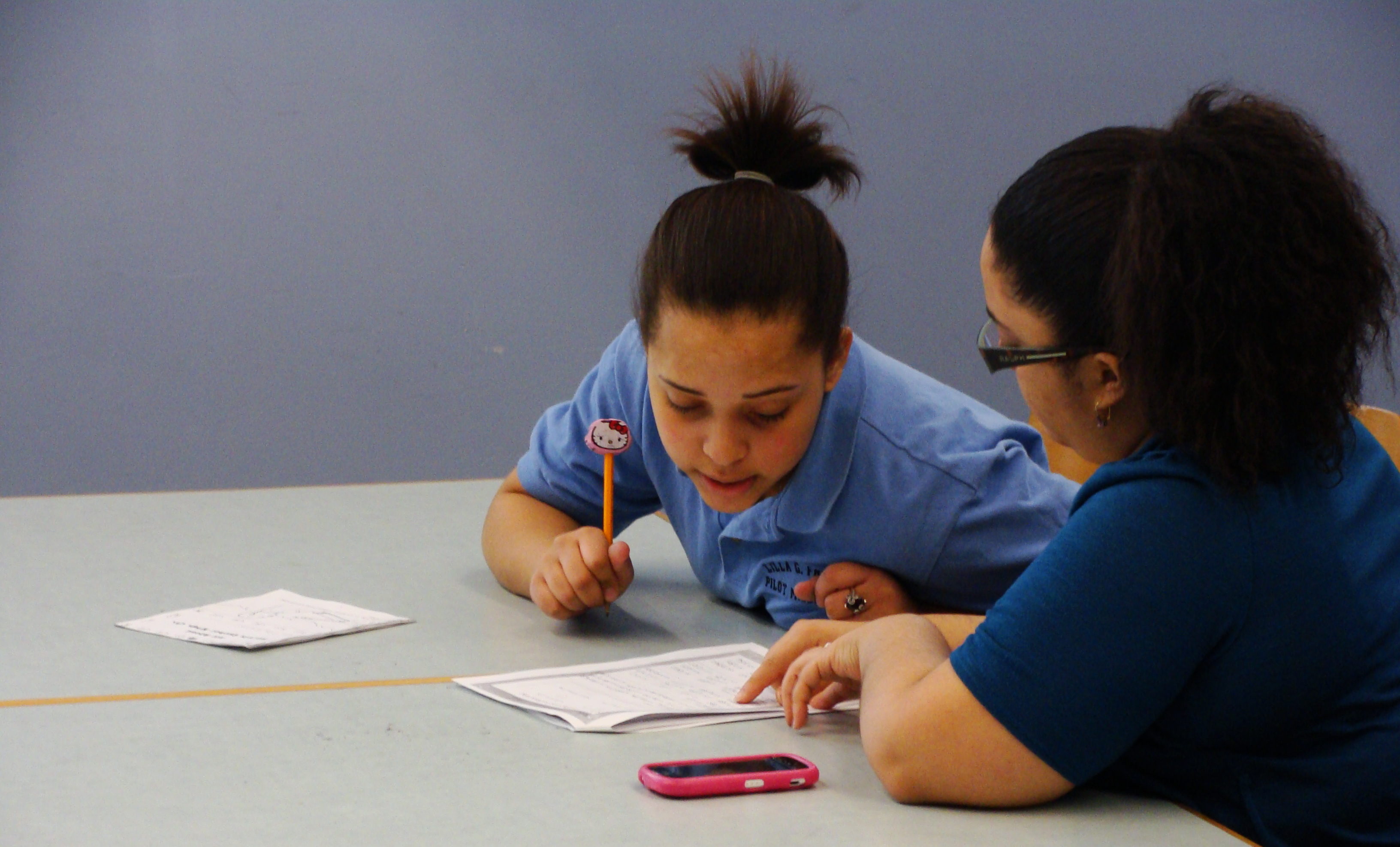
A shared background allowed Davila to quickly connect with her student. “She was actually very reserved, or so it seemed, around her teacher and classmates. But, once she found out that I spoke Spanish, her personality just came out.”
Since its founding, Boston Partners in Education has tried to connect students with academic mentors who have found success in similar circumstances. While academics provides the context to these connections, many of the students we serve benefit most from role models who offer an uncluttered view of paths that will lead to success. Remarkably, this works both ways, providing the academic mentor with the same clarity of purpose that inspires them to pursue new goals.
Such is the case with Carolina Davila, an employee of Boston Partners from 2011-2013, and the student she mentored at the Frederick Pilot Middle School. A seventh grader, this student was bright, curious, and drawn to creative pursuits—preferring writing assignments to math and science. She had recently moved from the Dominican Republic and was living with her older brother and father in the city. Her mother, however, was still living abroad. The student’s teacher thought she would benefit from a female role model.
Davila had come from similar origins. She entered seventh grade after moving from Puerto Rico. In Davila’s case, a community program called ‘Spontaneous Celebrations’ connected her to fellow students who helped her adjust to living in Boston. “It was an afterschool program, fairly low-key, but other students brought me along, showing me where to go and how to make friends. We talked a lot about community involvement and community service,” Davila recalled.
This shared background allowed Davila to quickly connect with her student. “She was actually very reserved, or so it seemed, around her teacher and classmates. But, once she found out that I spoke Spanish, her personality just came out. So, clearly, speaking English was a point of insecurity that she had,” Davila said. She decided to speak Spanish in their lessons to build a rapport with the student, but it was important to Davila that she also challenged the student.
For example, when the student declared that she didn’t think math would be useful to her, Davila asked what she wanted to be. “I want to be a nurse,” the student replied.
“I had to explain to her the importance of knowing math in order for you to be a nurse,” said Davila. “I referred to my observations of my college peers, and the rigorous nursing program that they had.” In a similar vein, Davila encouraged her student to practice English even when it didn’t feel comfortable, so that her writing would improve.
Davila’s student became interested in her academic career after she explained how learning these speaking skills had benefited her in college. She asked Davila, “What is college like? What is the application process? What was your experience like there? Do you miss it?” Essentially, the conversation ended with her student wanting to be just like her—she even expressed interest in going to the same school Davila attended to study nursing.
At that moment, Davila realized she was more of a mentor than an academic coach. Coming from a similar background, she was able to show her student that no matter her circumstance, it was completely possible to be successful.
“You’re showing students that the community cares. You’re showing teachers that they are appreciated. You’re also showing the school administrators that they are supported. Most importantly, you are able to grab those students and show them you really care so they don’t slip through the cracks.”
For Davila, these conversations gave her as much direction as they gave the student. “It was also the moment I realized that I kind of missed college,” she said. “I like these individualized moments right now, where you impact somebody’s life with your own story, and then they make the decisions for themselves.” From this experience, Davila decided she wanted to work in education. She now works at UCONN as a residential hall director.
Davila believes that academic mentors can serve as inspiration to much more than just the student, providing a sense of ownership to the community. “You’re showing students that the community cares. You’re showing teachers that they are appreciated. You’re also showing the school administrators that they are supported. Most importantly, you are able to grab those students and show them you really care so they don’t slip through the cracks.”
